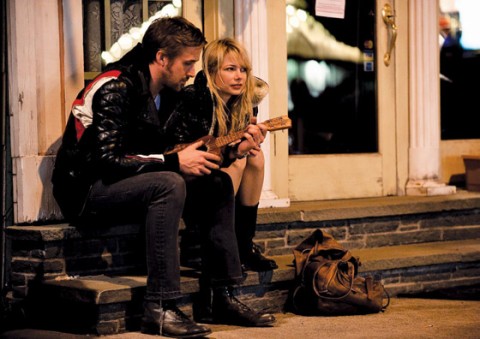Blue Valentine

Marriage is a juicy topic for filmmakers, but few movies get made about happy ones. More common is the dissection of a once-happy union that is coming apart at the seams. The reasons for its demise usually involve such dramatic standbys as infidelity, illness or death, though a few directors with a more pronounced tragic vision have upped the ante by zeroing in on festering hatred (think John Cassavetes) or gut-wrenching psychological cruelty (a specialty of Ingmar Bergman).
Derek Cianfrance's Blue Valentine is also about the last gasps of a once-happy marriage, but there is a surprising lack of heavy dramatic conflict at its core. In the six years that Dean (Ryan Gosling) and Cindy (Michelle Williams) have been together, there hasn't been any ugly betrayal, big lie or major life change. Instead, all of the pressure is coming from within: they are six years older than when they first took their vows, and one of them has changed more than the other.
That would be Cindy, whose natural intelligence is starting to feed her latent ambition. She is a well-respected nurse at a small medical center, where she has opportunities for advancement. But her dreams of a better life with greater challenges are being thwarted by Dean, who never graduated high school, has gone from being a furniture mover to being a house painter and seems indifferent to the ladder of success. Dean adores Cindy, is a terrific father to their daughter and possesses a sense of humor and sweetness of spirit that most women would kill for in a husband. But he also drinks too much beer in the morning. (When Cindy complains that if he didn't drink that early he could find a better job, Dean retorts that he's grateful to have a job that allows him to drink in the morning.)





